


Numerous web sites, Mamma Mia - The Movie - Official Web Site, Internet Movie Data Base - ABBA, Mamma Mia - The Musical & ABBA - The Official Web Site were quite helpful in preparing my tribute to ABBA. Please click on the hyperlinks to enjoy these web sites.
They have a great web site, click on the hyperlink, ABBA - The Official Web Site. If your speakers are on, music will start playing once the site opens.
ABBA is an acronym for the first letter of the first names, of the four band members, Agnetha Faltskog, Bjorn Ulvaeus, Benny Andersson and Anni-Frid Lyngstad.
The ABBA story began in June 1966 when Bjorn Ulvaeus (born 1945) met Benny Andersson (born 1946) for the first time. Björn was a member of The Hootenanny Singers, a very popular folk music group, while Benny played keyboards in
The pair wrote their first song together later that year, and by the end of the decade they had established a regular partnership as composers. By that time, Benny had left The Hep Stars, while The Hootenanny Singers only existed in the recording studio. The Hootenanny Singers released their records on the Polar Music record label, owned by Stig Anderson (1931–1997), who was to become ABBA’s manager. Stig also contributed lyrics to many ABBA hits during the first years of the group’s career.
In the spring of 1969, Björn and Benny met the two women who were to become not only their fiancées but also the other half of ABBA. Agnetha Faltskog (born 1950) had been a successful solo singer since releasing her first single in 1967. She and Björn were married in July 1971. Anni-Frid Lyngstad (born 1945), also known as Frida, started her recording career shortly before Agnetha. Frida was of Norwegian origin, but had moved to
At first, the four members collaborated musically mainly by contributing songs, instrumental backing, production work or backing vocals to the recordings they each made as solo or duo acts. In 1970, the attractive sound of their four voices combined gave them the idea to put together the cabaret act Festfolk (which had the double meaning "engaged couples" and "party people"). This first attempt failed, but in the spring of 1972 they recorded a song called ‘People Need Love’, garnering a medium-sized hit in
Encouraged by this success, they entered the 1973 Swedish selections for the Eurovision Song Contest with the song ‘Ring, Ring’. They finished third, but the single and the album of the same name competed for the top positions on the Swedish chart. ‘Ring, Ring’ also became a hit in several other European countries.
The group entered the selections again in 1974, this time with ‘Waterloo’, which took them all the way to the finals in
Soon after this triumph, ‘Waterloo’ was Number One on the charts all over
‘Mamma Mia’, also taken from ABBA, returned the group to the UK Number One spot, which they occupied a total of nine times between 1974 and 1980. ‘Mamma Mia’ was also a Number One hit in
1976 was the year when ABBA finally and firmly established themselves as one of the most popular groups in the world. The different greatest hits compilations released in the
In late 1976 ABBA’s fourth album, Arrival, was released. The album stormed up the charts and spawned hits such as ‘Money, Money, Money’ and ‘Knowing Me, Knowing You’. This was followed by a concert tour of Europe and
The spring of 1978 saw the group embarking on a major promotional campaign in the USA, leading to a Top Three single with ‘Take A Chance On Me’ and a Top Twenty entry for ABBA - The Album. The hit singles ‘
ABBA’s single ‘Gimme ! Gimme ! Gimme ! (A Man After Midnight)’ was released in the autumn of 1979, coinciding with a major tour of
In March 1980, ABBA took their tour to
In February 1981, the final blow was dealt to ABBA’s happy-couples image of the 1970s, when Benny and Frida announced their divorce. This event still didn’t stop the foursome from working together. At the end of the year, ABBA’s eighth album, The Visitors, was released. ‘One Of Us’ was the biggest hit off the album.
1982 saw the energy gradually running out of the group, as Björn and Benny set their sights on writing Chess The Musical (containing the hit “One Night In Bangkok,” by Murray Head) and Agnetha and Frida were reviving their solo careers. The only ABBA LP release this year was a compilation double album of their hit singles, entitled The Singles – The First Ten Years, including two new songs. Although the single ‘The Day Before You Came’ was one of the group’s most accomplished recordings it failed to become a worldwide hit on the scale that they had been used to. At the end of 1982, ABBA decided to take a break. If they wanted to they could always get back together after a few years, they reasoned.
Twenty-five years after ABBA’s “temporary break”, there still has been no ABBA reunion. But the group’s music lives on: the 1990s saw the beginning of a major revival, with successful cover versions and high-profile movies using ABBA songs on their soundtracks attracting a great deal of attention. The compilation CD ABBA Gold - Greatest Hits, released in 1992, has sold 26 million copies to date.
The 1993 companion album, More ABBA Gold – More ABBA Hits, went on to sell 2.5 million copies. The box set Thank You For The Music followed in 1994, containing all the hits, selected album tracks, plus rare and previously unreleased recordings.
1999 saw the
Since the start of the 21st Century, Universal Music has continually upgraded the ABBA catalogue. So far, ABBA’s eight original studio albums have been reissued with additional bonus tracks, revised artwork and expanded booklets (Waterloo, Arrival and ABBA - The Album have since been released as expanded Deluxe Editions, featuring DVDs containing previously unissued television performances and other rarities). The compilation albums ABBA Gold - Greatest Hits and ABBA ORO - Grandes Exitos have been reissued with revised booklets and updated liner notes, and a double-CD compiling all ABBA singles, The Definitive Collection, has sold more than 1 million copies. A comprehensive box set, The Complete Studio Recordings, was released in 2005, receiving spectacular press reviews.
ABBA’s videos have been collected on two different DVD releases: The Definitive Collection and ABBA Gold, featuring the cleaned-up and remastered original film clips. The two live concert films ABBA - The Movie and ABBA In Concert have been restored and re-released on DVD, with bonus material. Other DVD releases include the official documentary Super Troupers and the short film The Last Video, which featured cameo appearances from the ABBA members.
June 2009 sees the opening of ABBA the Museum in
Agnetha Fältskog's biography…
Agnetha Åse Fältskog was born on April 5, 1950 in the town of
Björn Ulvaeus's biography…
Björn Kristian Ulvaeus was born in Gothenburg on April 25, 1945. In the mid-Fifties Björn fell in love with rock’n’roll and skiffle. By the early Sixties he was a member of a folk group called the West Bay Singers. In 1963 they entered a talent contest arranged by Swedish radio. This led to discovery by songwriter and publisher Stig Anderson and his partner, Bengt Bernhag. Stig and Bengt had recently started a record company called Polar Music. The band acquired a new name, the Hootenanny Singers, and quickly became one of
Benny Andersson's biography…
Göran Bror Benny Andersson was born December 16, 1946 in
Anni-Frid Lyngstad's biography…
Anni-Frid Synni Lyngstad, better known simply as Frida, was born November 15, 1945 in Ballangen outside of
Mamma Mia! – The Movie…
In July 2008, the star-studded film version Mamma Mia - The Movie - Official Web Site, of Mamma Mia - The Musical, opens in cinemas all over the world.
For the past ten years, it’s highly unlikely you’re not familiar with the global success story that is Mamma Mia - The Musical ! After opening in
“I knew early on that there would be a film sooner or later, although I don’t remember the exact turning-point”, says former ABBA member Bjorn Ulvaeus. According to Bjorn Ulvaeus those fears had been overcome just a few years later. “It used to be that one wouldn’t make a film until ‘the stage musical has had its run’,” he explains, “but that rule has been abandoned these days. There doesn’t seem to be a particular timing that is exactly right, but there is plenty of evidence that the stage version benefits from a film version, no matter what kind of business the latter does. ‘The Phantom Of The Opera’ is an example of that. It was about to close on Broadway when the film – which wasn’t a major success – opened, but it could continue after all the media exposure from the film.”
The production company responsible for bringing Mamma Mia! to the screen was Playtone, founded by
Johnson certainly never thought twice about grabbing this opportunity to transfer her story to the screen. “I relished the challenge!” she enthuses. “I love movies, I want to write movies, this was an unmissable opportunity for me – and of course I felt ‘no-one knows these characters like I do, it has to be me writing the screenplay’.” That said, Johnson certainly had to find a unique way of approaching the process of screen writing, balancing the appeal of the original stage show against the opportunities afforded by a cinematic context. “What took me some time to accept is that the show has a very solid structure”, she admits. “My early drafts of the screenplay tried to move away from that and everything became over-complicated. I was excited to be doing something different and trying to re-write every line, but as they say ‘if it ain’t broke ...’”
In January 2007 it was announced that none other than Meryl Streep – one of the most famous and well-respected American actresses of the past three decades – had signed on to play the lead role of Donna. Well before the movie version Streep had made it clear that she was a fan of the musical, sending her compliments to the cast after seeing a Broadway performance. Naturally, the production team took note. When Streep was asked whether she would like to appear in the movie version, her reply was more enthusiastic than the production team had dared hope for: “Are you kidding? I AM Mamma Mia!”
With Streep on board, there were no problems in attracting a stellar cast for all the main characters. It was soon announced that Pierce Brosnan, Colin Firth and
Although few of the cast members are known as singers, the producers obviously did their casting with an important but often overlooked truth about musicals at the back of their minds, namely that it’s more crucial that the actors can be believable as their characters – and deliver lyrics like they really mean them – than that their voices are what may be described as traditionally “pretty”. That said, the actors’ vocal qualities were obviously a consideration, and in interviews especially Colin Firth and Stellan Skarsgard have been quite self-deprecating as to their singing abilities. However, ABBA’s Benny Andersson had complete faith in them and was 100 per cent satisfied with the end result. “They were primarily chosen for their qualities as actors,” he said, “but if they hadn’t been able to sing they wouldn’t have got the parts.”
It was self-evident that Benny Andersson – the man who, in partnership with Bjorn Ulvaeus, wrote and produced all of ABBA’s recordings way back when – would be in charge of the soundtrack recording. To get that authentic feel, a selection of the original musicians ABBA used on their recordings were asked to take part in the Mamma Mia! recordings: at the core during the sessions were bassist Rutger Gunnarsson, guitarist Lasse Wellander and drummer Per Lindvall, with Benny himself on keyboards. Benny describes the experience of reworking the old ABBA songs with the original musicians as “very pleasurable”. It probably says something about the musicians’ professionalism and familiarity with the material that everything went much quicker than anyone had expected. “I had counted on recording everything in three weeks – it took five days”, Benny notes.
When the stage version of Mamma Mia! was put together, the original ABBA backing track tapes were retrieved and the music on them faithfully transcribed, in order that the arrangements would be as close to the ABBA sound as it was. But now, revisiting songs that were originally recorded more than a quarter of a century ago, was Benny ever tempted to add something new to his tunes? “I’ve tried to keep as close to the original recordings as possible”, he explains, “but sometimes you get the urge [to change things] when a new thought pops up! However, the result is very close to ‘reality’.”
With the soundtrack in place, shooting could finally start – first on location on the Greek islands of Skopelos and Skiathlos, and then at Pinewood Studios in
Judging by trailers and advance buzz, it seems Mamma Mia! will become one of the major hits of 2008 – thus continuing what has turned out to be the greatest musical success story of the past decade. And in July, you may find out for yourself what the movie version of Mamma Mia! is really like.
Mamma Mia - The Movie, debuted in the
Discography:
ABBA Number Ones - 2006
The Complete Studio Recordings - 2005
The Definitive Collection - 2001
ABBA ORO - Grandes Exitos - 1999
Thank You For The Music - 1994
More ABBA Gold – More ABBA Hits - 1993
ABBA Gold - Greatest Hits - 1992
ABBA Live - 1986
The Singles – The First Ten Years - 1982
The Visitors – 1981
Gracias Por La Música - 1980
Super Trouper – 1980
Greatest Hits Vol. 2 - 1979
Voulez-Vous – 1979
ABBA - The Album – 1977
Arrival – 1976
ABBA – 1975
Greatest Hits - 1975
Waterloo - 1974
Ring Ring - 1973
ABBA is one of my all-time favorite artists. They have many great songs, such as Chiquitita, Dancing Queen, Does Your Mother Know, Fernando, Gimme ! Gimme ! Gimme ! (A Man After Midnight), Honey Honey, I Do, I Do, I Do, I Do, I Do, I Have A Dream, Knowing Me, Knowing You,Lay All Your Love On Me, Mamma Mia, Money, Money, Money, Ring, Ring, SOS, Super Trouper, Take A Chance On Me, The Name Of The Game,The Winner Takes It All, Waterloo, and When I Kissed The Teacher, among others…
I also have a copy of the terrific rock band, U2, doing a solid cover version, of ABBA’s Dancing Queen, my all-time favorite song.
Thank you, ABBA, for some fantastic music…

















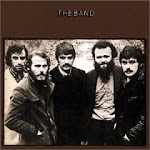



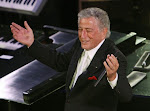







































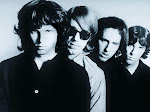
























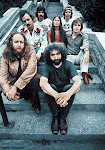




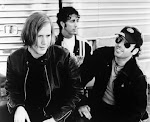

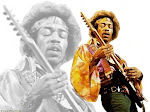









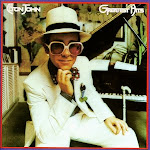




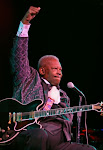


















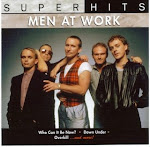%2B-%2BRock.jpg)

















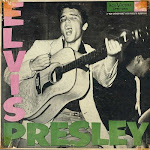



















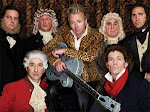




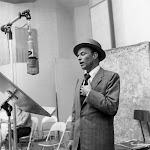
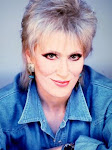














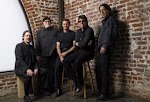




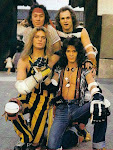











1 comment:
Hey, just thought I'd let you know that to celebrate the release of Mamma Mia, global polling community Poll the People have launched a poll to find the definitive BEST ABBA SONG!
have your say now - http://www.pollthepeople.com
Post a Comment